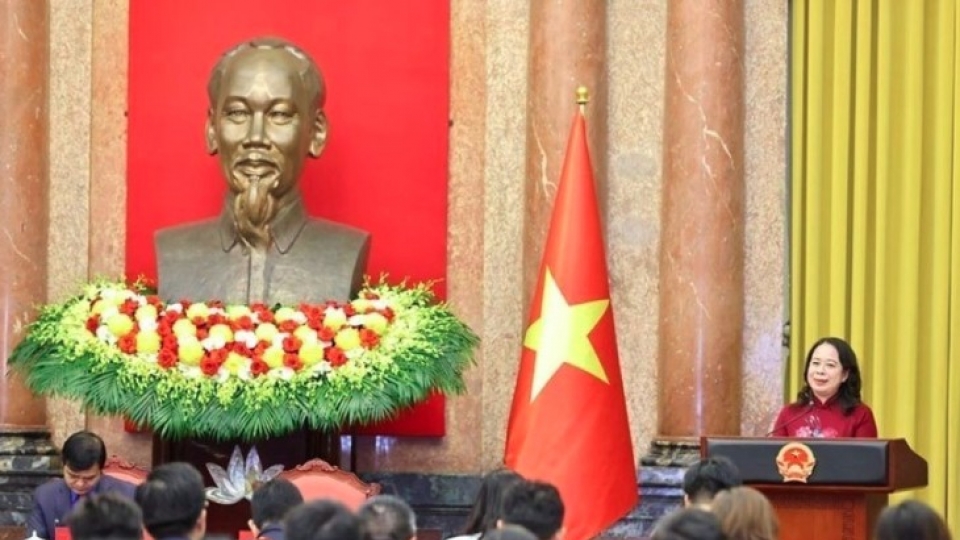Vietnamese intellectuals in Germany contribute ideas on green growth, education
The Vietnamese Embassy in Germany held a seminar on November 8 to gather opinions from Vietnamese intellectuals and entrepreneurs in Germany on the draft documents for the 14th National Party Congress.

Opening the event, Ambassador Nguyen Dac Thanh affirmed that the Party and State always highly evaluate the insights of overseas Vietnamese, especially intellectuals, experts and entrepreneurs who possess modern knowledge, international experience and a deep sense of patriotism - an important resource for national development and sustainable integration.
Participants praised the quality of the draft documents, which concisely combine key contents into a 50-page political report with 18 new highlights.
Dr. Nguyen Thai Chinh, an Earth Science and Satellite Geodesy expert and member of the Viet–German Innovation Network (VGI), said the documents reflect the collective wisdom of the Party and people. He described each sentence as a “manifesto” guiding actions across all levels.
Prof. Dr. Nguyen Xuan Thinh from Technical University Dortmund, Acting President of the Union of Vietnamese Associations in Germany and Chairman of VGI, commended the Party’s openness in publicising the drafts early to seek feedback from overseas intellectuals. This demonstrates transparency, democracy and respect for the intellectual contributions of the Vietnamese community while enhancing the practicality of development policies, he said.
Thinh emphasised that to achieve the goal of carbon neutrality by 2050, the action programme should further prioritise green and renewable energy as national development pillars, including hydrogen technology and green architecture. He also called for strategic infrastructure investment in the Mekong Delta to foster green growth, linking transport, logistics and energy development with emission reduction goals.
Young intellectuals working in German universities and organisations focused their comments on education, science, technology and culture.
Nguyen Bang Tu, Vice President of the Vietnamese Students’ Association in Germany, proposed creating a national human resource database to connect overseas Vietnamese talents with job opportunities in the homeland, while the Government should establish a national digital competency framework.
Dr. Nguyen Viet Tuan, who is working at Tentamus Group, suggested Vietnam learn from Germany’s project management model to optimise investment in science and technology.
Nguyen Son Thu, Chairman of the Viet–German Bridge Association, called for clearer objectives in Vietnam’s economic relations with Germany and the European Union.
On cultural development, Prof. Nguyen Hong Thai from the University of Stettin, expressed strong support for fostering an advanced Vietnamese culture rich in national identity, grounded in core national, cultural and family values.
Concluding the seminar, Ambassador Thanh said the heartfelt and strategic contributions of overseas Vietnamese intellectuals and entrepreneurs would help refine the Party’s development directions and enhance Vietnam’s position in the world.




